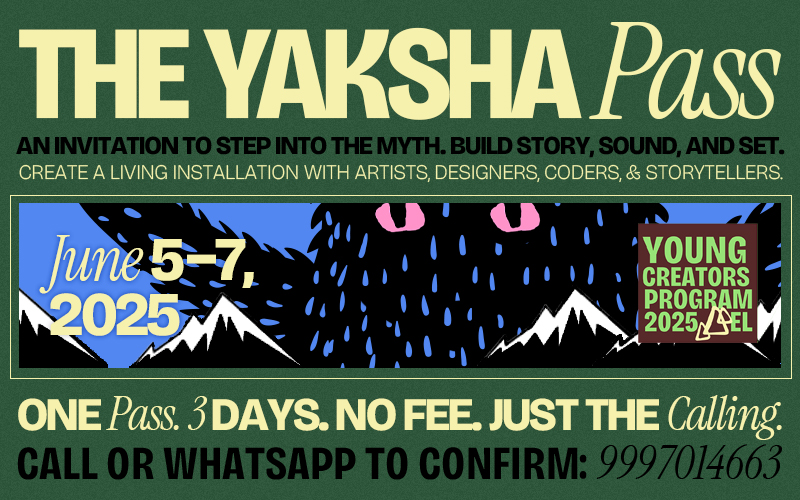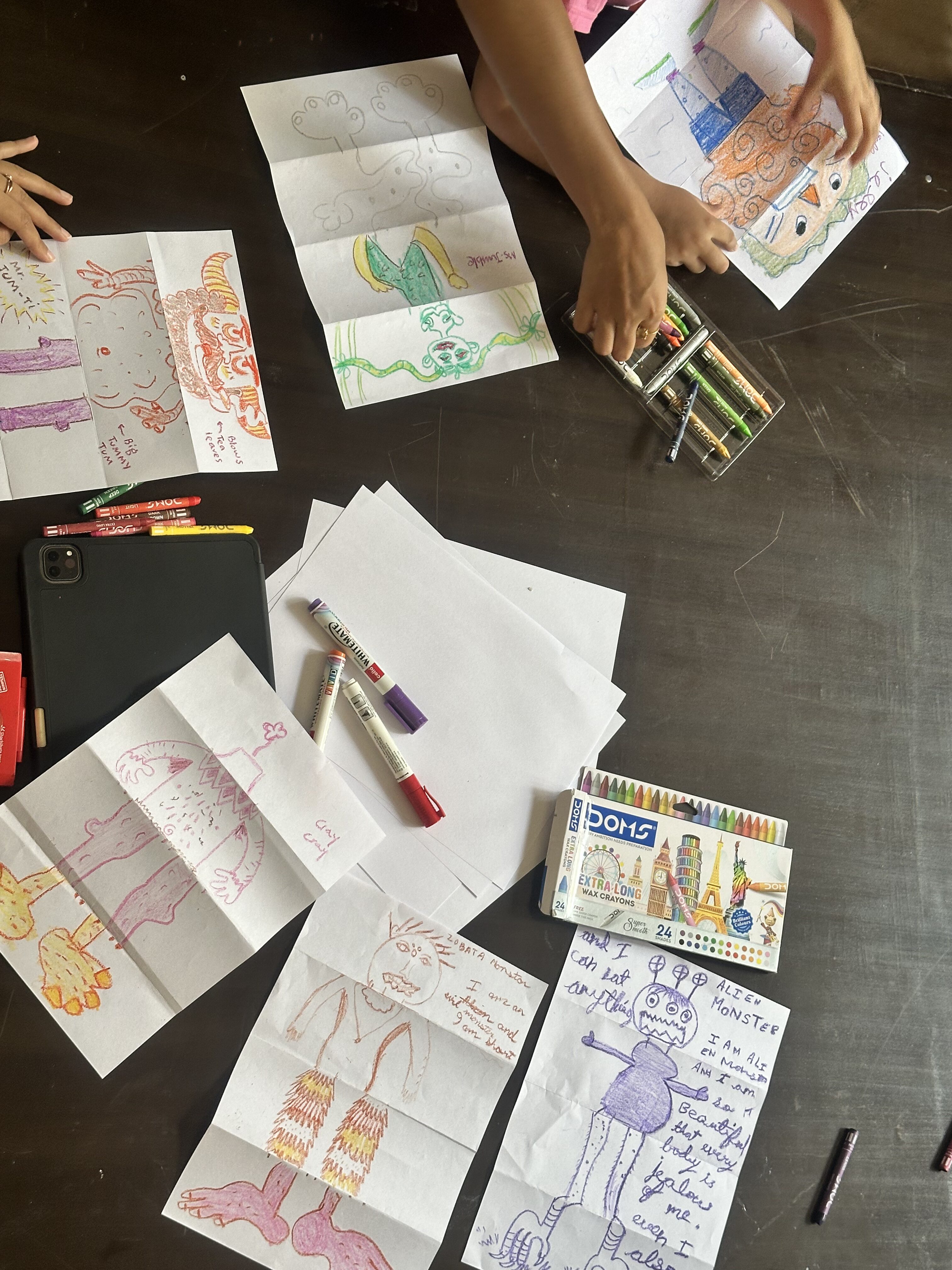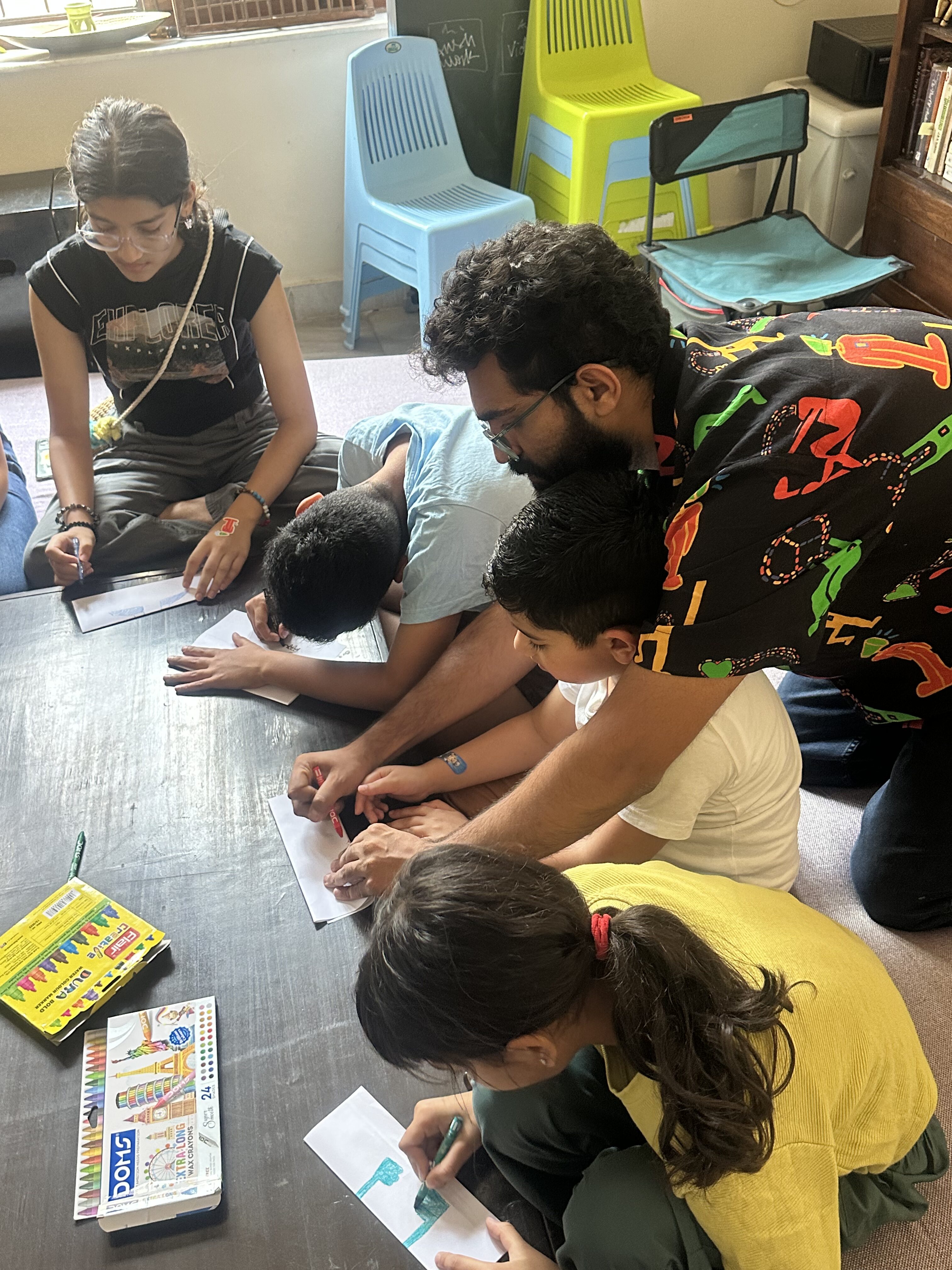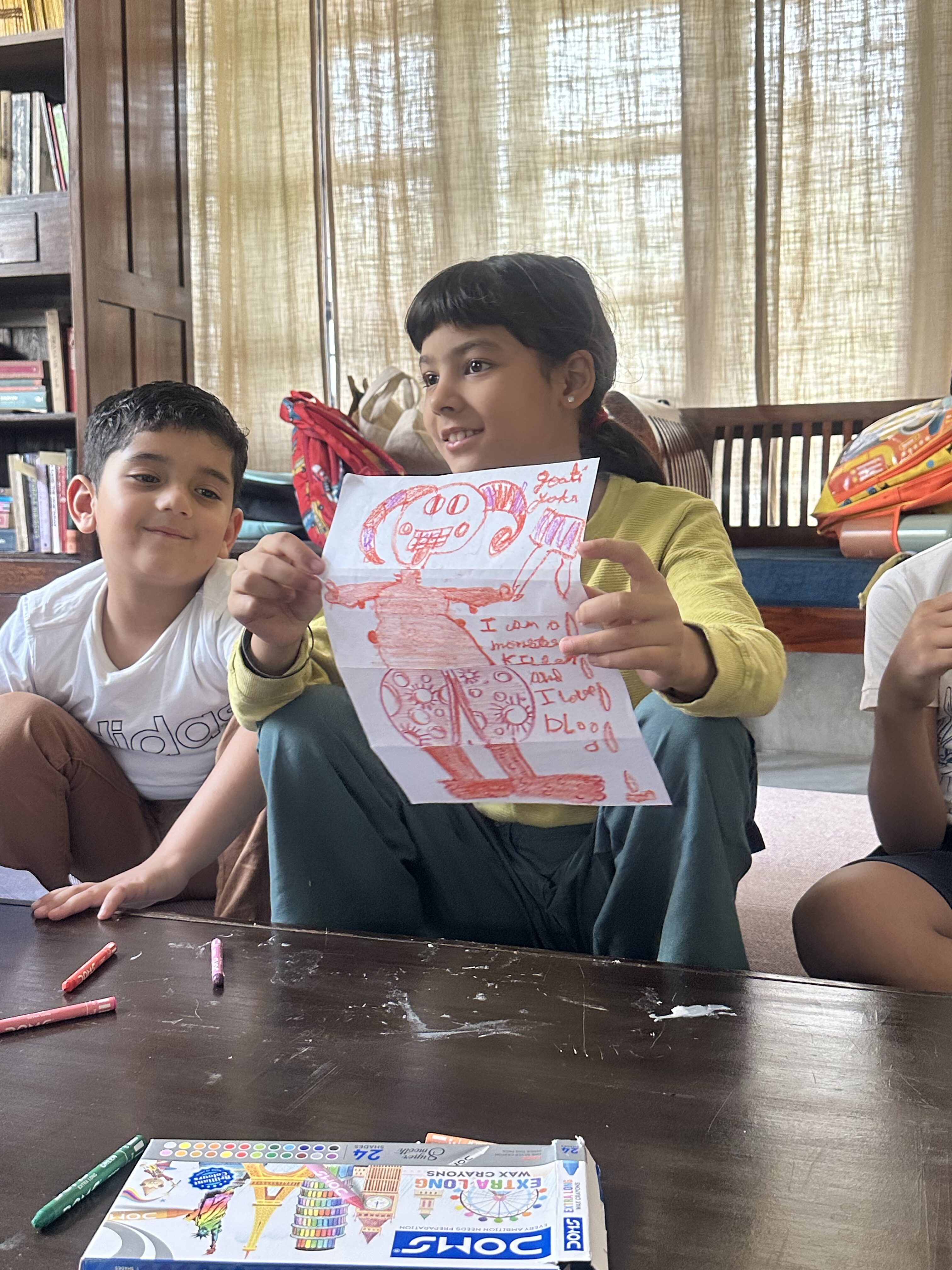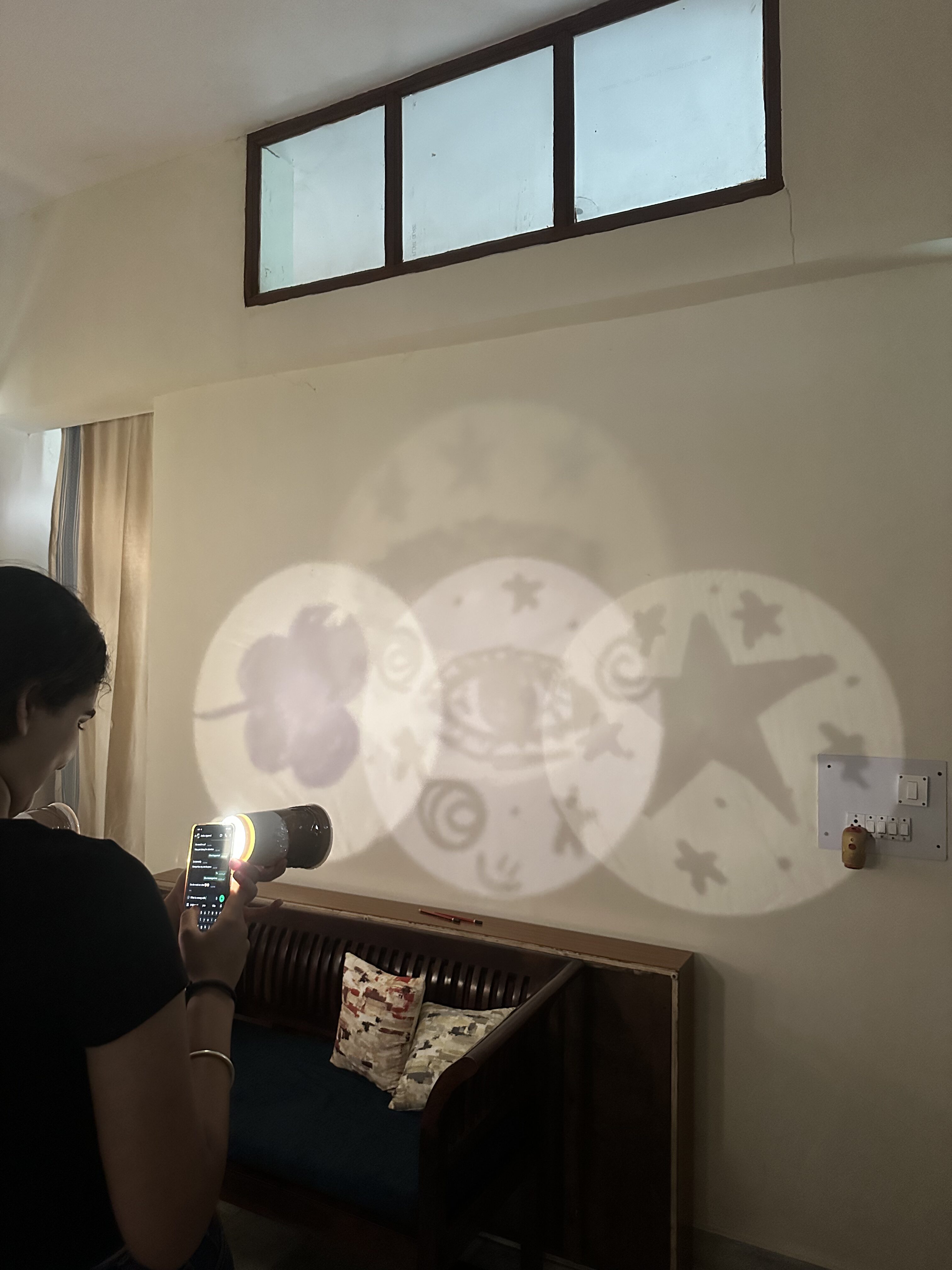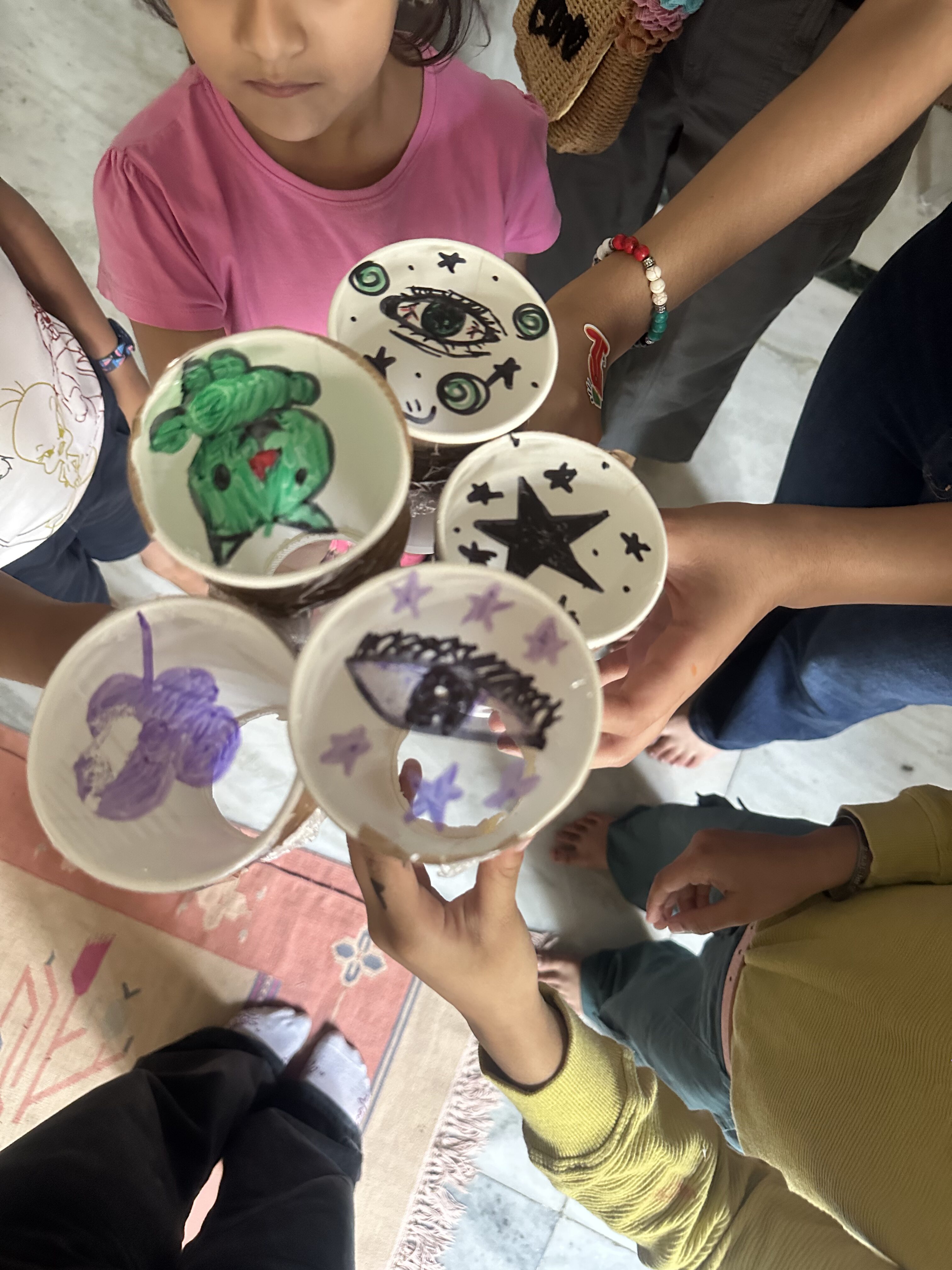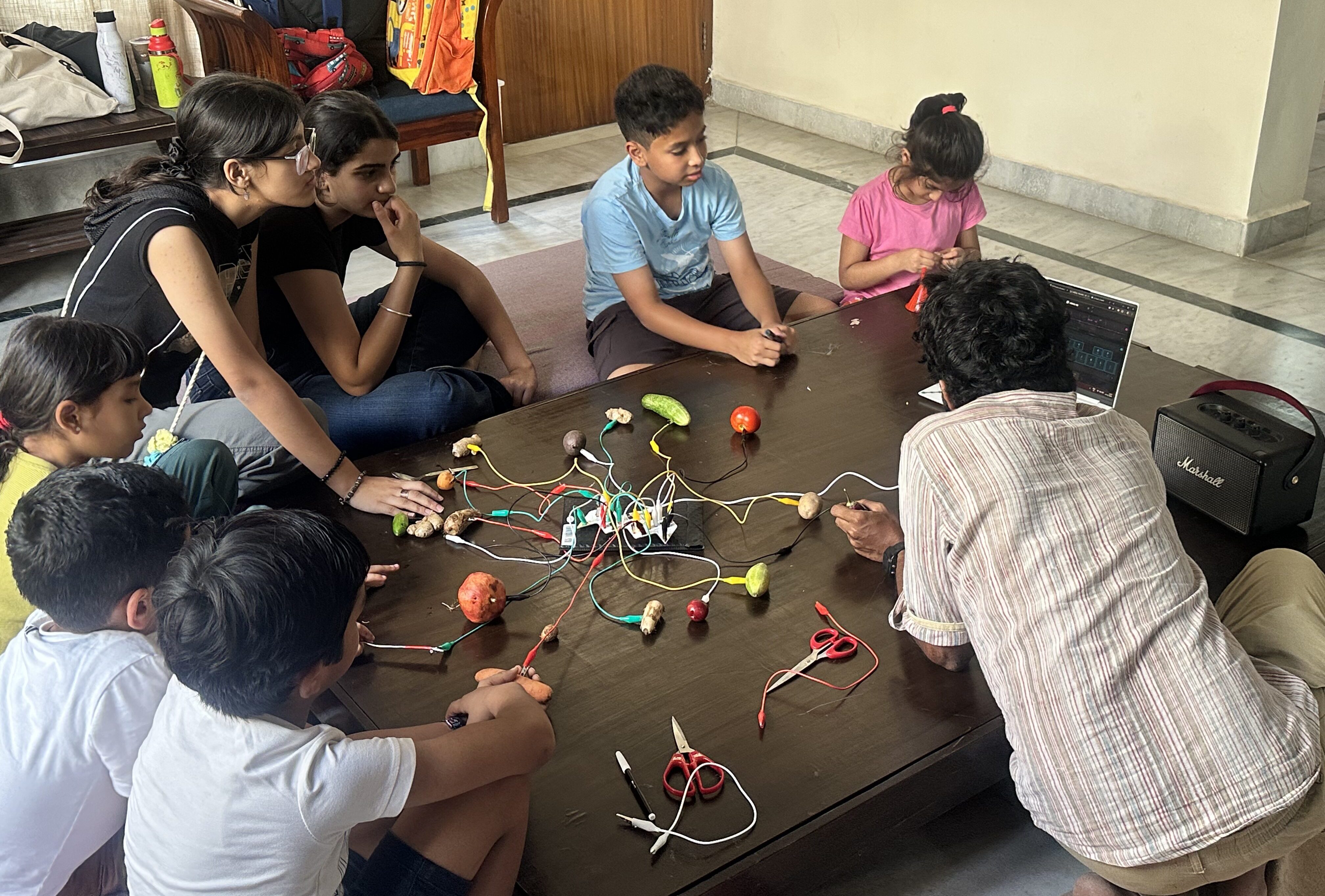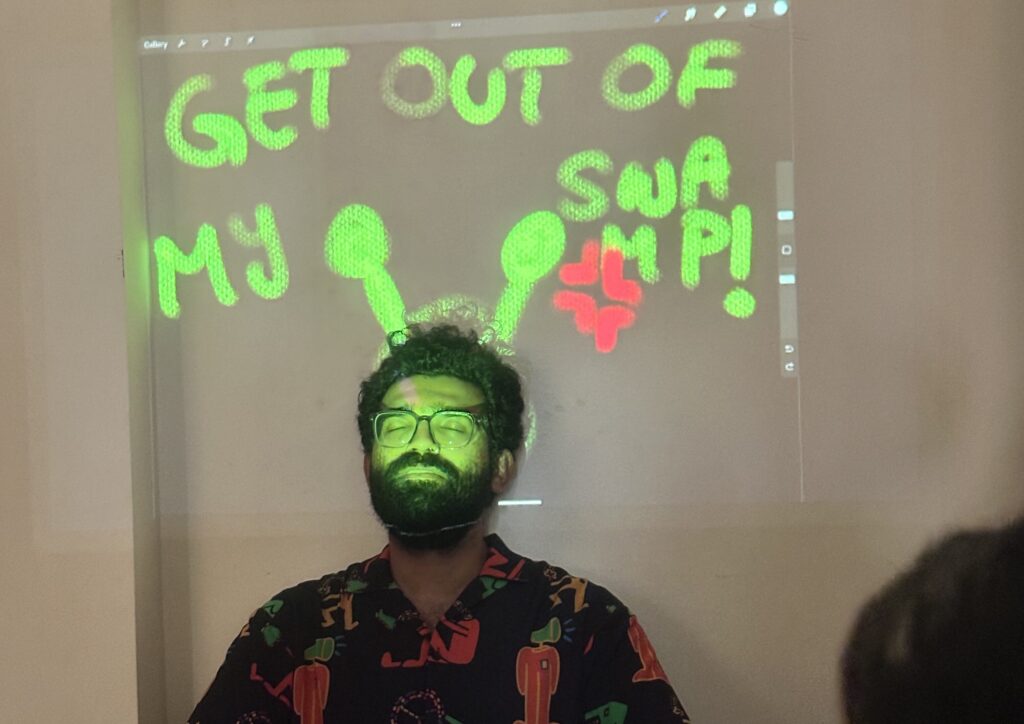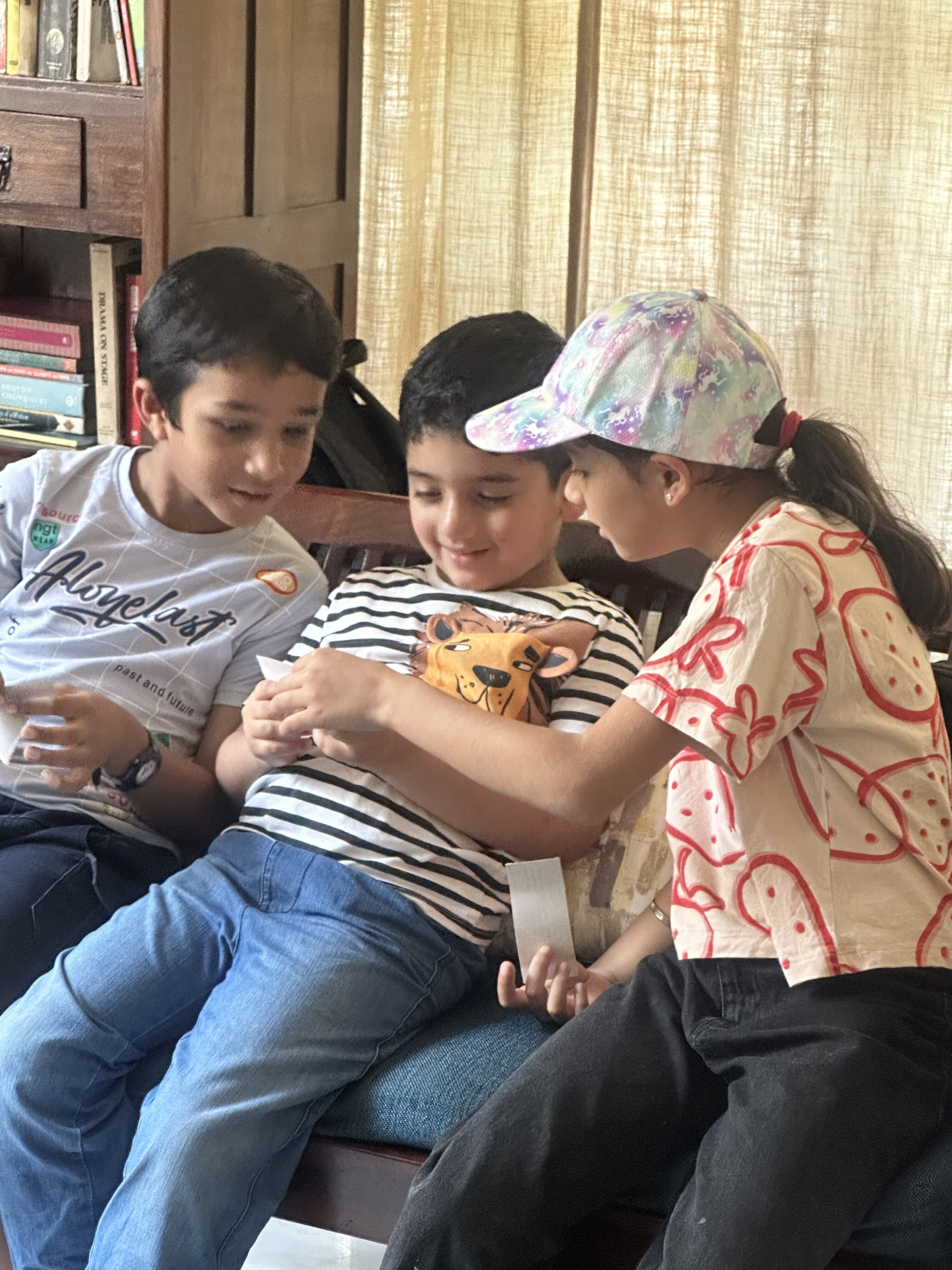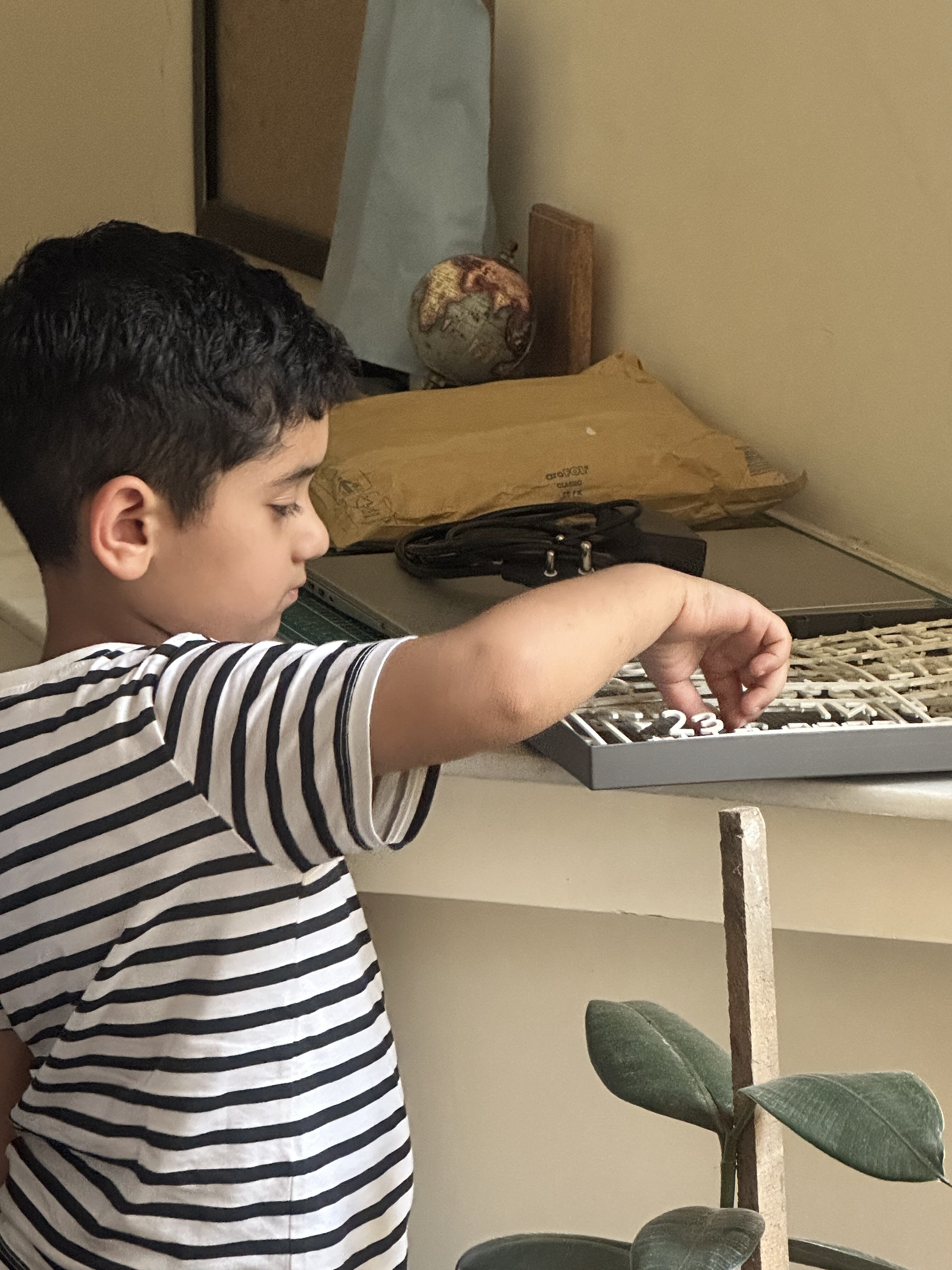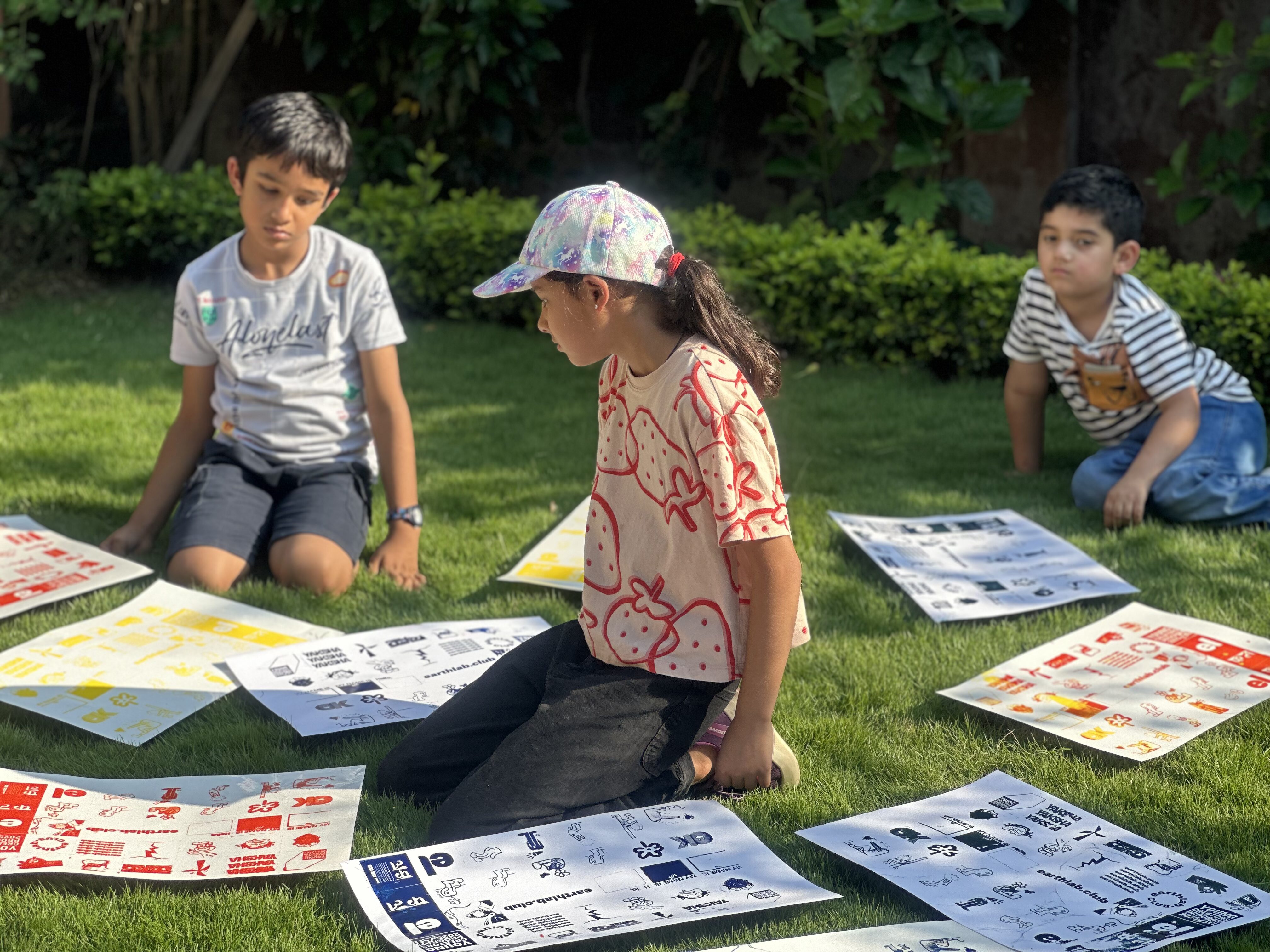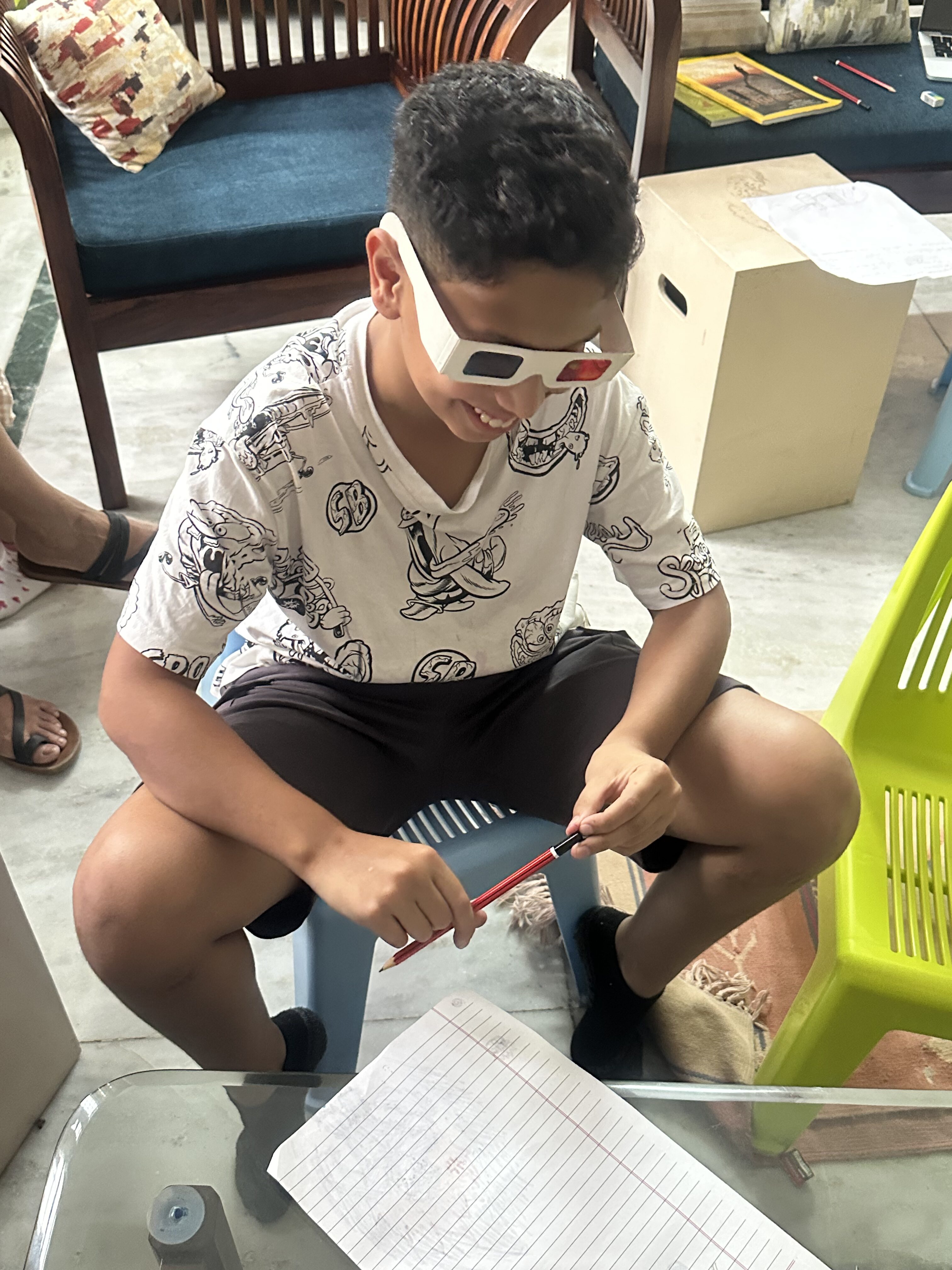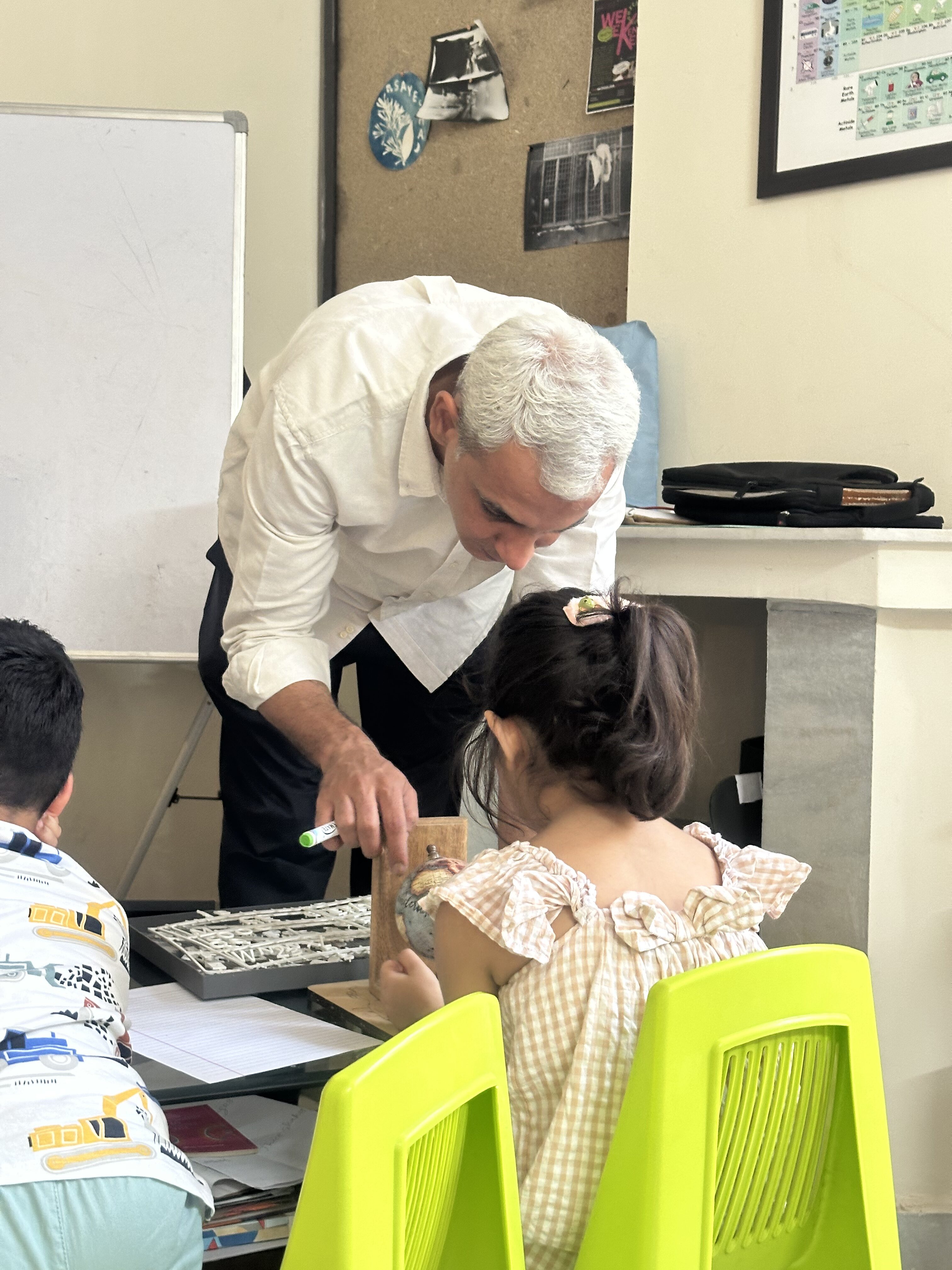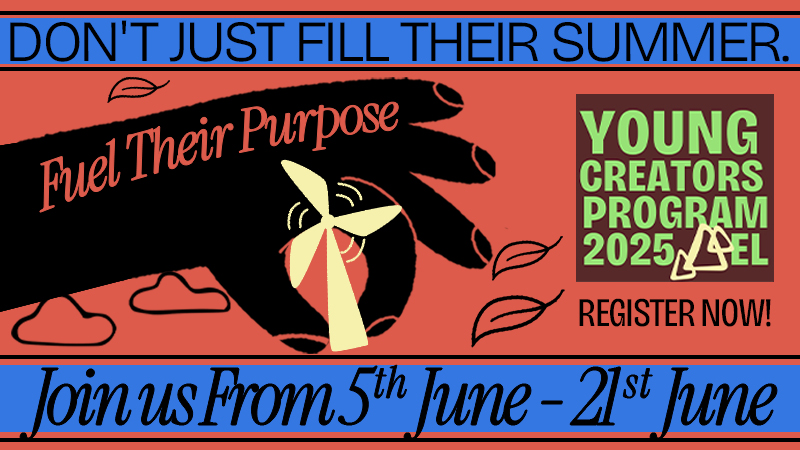What are the dates and timings of the programme?
The programme runs from 5th June to the 21st June, 2025, from 10:00 AM to 5:00 PM daily, including Sundays.
Where will the programme take place?
All activities will be held at the EarthLab Club Studio, Shivam Vihar, Jakhan, Dehradun.
Who can join the programme?
Children aged 7–17 years can join. Participants will be divided into small age-based cohorts to ensure age-appropriate engagement and mentoring.
How many students per batch?
We cap participation to 30 children only, divided into:
- 7–9 years: 6 participants
- 10–14 years: 14 participants
- 15–17 years: 10 participants
What is the theme of this year’s programme?
This year’s theme is “The Yaksha: Myth, Memory, and the Future of Nature”, combining storytelling, environmental awareness, and immersive technology.
What will the children be creating?
An interactive, tech-driven storytelling installation inspired by the mythical Yaksha of Bandarpunch and the Last Keepers of Tons—featuring sound, light, movement, and narrative.
Can my child join just one module?
Yes! You can enroll your child in a standalone module (Storytelling, Visual, Tech, or Music/Media). However, only full-programme participants will be part of the Set Design Lab and immersive exhibition build.
Is any prior experience required to join?
None. The programme is designed to be inclusive and welcoming for all children.
What’s so different about this programme?
Unlike routine hobby classes, The Yaksha is an original, immersive EarthLab creation—where myth meets motion, creativity meets cause, and every child finds their thread in a larger story. It’s not about making projects. It’s about discovering purpose.
Is this more like a summer camp or a course?
It’s neither—and both. It blends the freedom and fun of summer with the depth and direction of a creative lab. Think of it as a purposeful adventure—part workshop, part quest, and entirely unforgettable.
What safety protocols will be followed?
The venue is child-safe and fully supervised. All tools are age-appropriate. First aid is available on-site.
What happens after the programme ends?
The installation will remain open for public viewing for two weeks—inviting families, schools, and visitors to experience what the children have created.
Can children from outside Dehradun join the programme?
Yes, absolutely! The Yaksha is open to students from all across India. We welcome young creators from different cities and cultures to be part of this unique experience.
Can stay arrangements be made for people coming from outside of Dehradun?
If there are a group of students or families traveling from outside Dehradun, EarthLab Club will help coordinate safe and convenient accommodation options in nearby guesthouses or homestays. Please note that the cost of accommodation is not included in the programme fee.
Will transport be provided for students?
If there are enough participants coming from a particular place or school group, we can assist in coordinating shared transport. Transport charges, however, will be separate from the programme fee and discussed case-by-case.
Are accommodation and transport included in the fee?
No, the standard programme pricing excludes travel, stay, and food unless explicitly mentioned. However, our team is happy to support parents with recommendations and logistical help.
What’s included in the fees?
- Daily sessions with mentors
- Tools, kits, and workshop materials
- Photography/videography (with prior consent)
- Participation in the public showcase
Are meals provided during the programme?
While EarthLab Club does not serve meals as part of the programme, there is a designated space and ample time provided for lunch. We offer storage and heating facilities for home-packed meals. Children get an hour-long break in the middle of the day for lunch and rest.
What will my child learn?
Through a blend of art, storytelling, tech, and design, they will learn:
- Basics of coding and IoT
- Light and sound design
- Installation art and spatial storytelling
- Myth-based narrative creation
- Music production and soundscapes
- Environmental consciousness and regenerative thinking
Will my child be overwhelmed or lost in a creative/tech programme like this?
Not at all. Each child is guided through age-appropriate activities. The emphasis is on curiosity, collaboration, and joy—not pressure or perfection. We create a supportive environment where all voices matter, and where trying something new is celebrated.
What if my child is shy or introverted?
We work in small groups, and our mentors are trained to help every child find their pace and space. Many of our most thoughtful contributors have been quiet observers who surprised even their parents with what they created.
Our mentors include installers, storytellers, engineers, musicians, and designers with global experience. Each brings hands-on guidance to help children build original projects.
What is the student-to-mentor ratio?
To ensure meaningful guidance and hands-on mentorship, we maintain a low student-to-mentor ratio. Each small group works directly with a mentor, receiving personal attention and support.
How does the wide age group (7–17) work out?
Participants are grouped into small, age-based cohorts, each exploring ideas at a level suited to their stage of development. While each group tackles different complexities and creation challenges, the overall experience is deeply collaborative. From the youngest to the oldest, everyone contributes—and learns not just from mentors, but from each other.
Is there a dress code?
There’s no strict dress code, but we recommend comfortable clothing that allows for movement and creative mess!
What is included in the fee?
- Daily sessions with mentors
- Tools, kits, and workshop materials
- Snacks & refreshments
- Photography/videography (with prior consent)
- Participation in the public showcase
Will participants receive certificates?
Yes! All students whether they join individual workshops or the full summer programme will receive official EarthLab Club certificates acknowledging their participation, effort, and creativity.
Are there any offers, scholarships, or incentives available?
We do have occasional offers if you’re interested in learning more about available discounts or special packages, feel free to reach out to our team directly on WhatsApp at 9997014663.
Can I meet or speak with the team before the programme begins?
Yes. You’re welcome to call or visit our studio by appointment to learn more and meet the team.
How do I register?
Call or WhatsApp us at 9997014663
Visit www.earthlab.club
Follow us on Instagram: @earthlab.club

